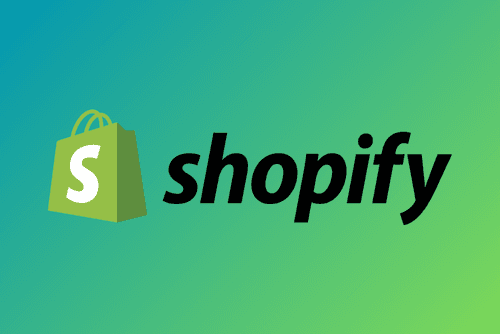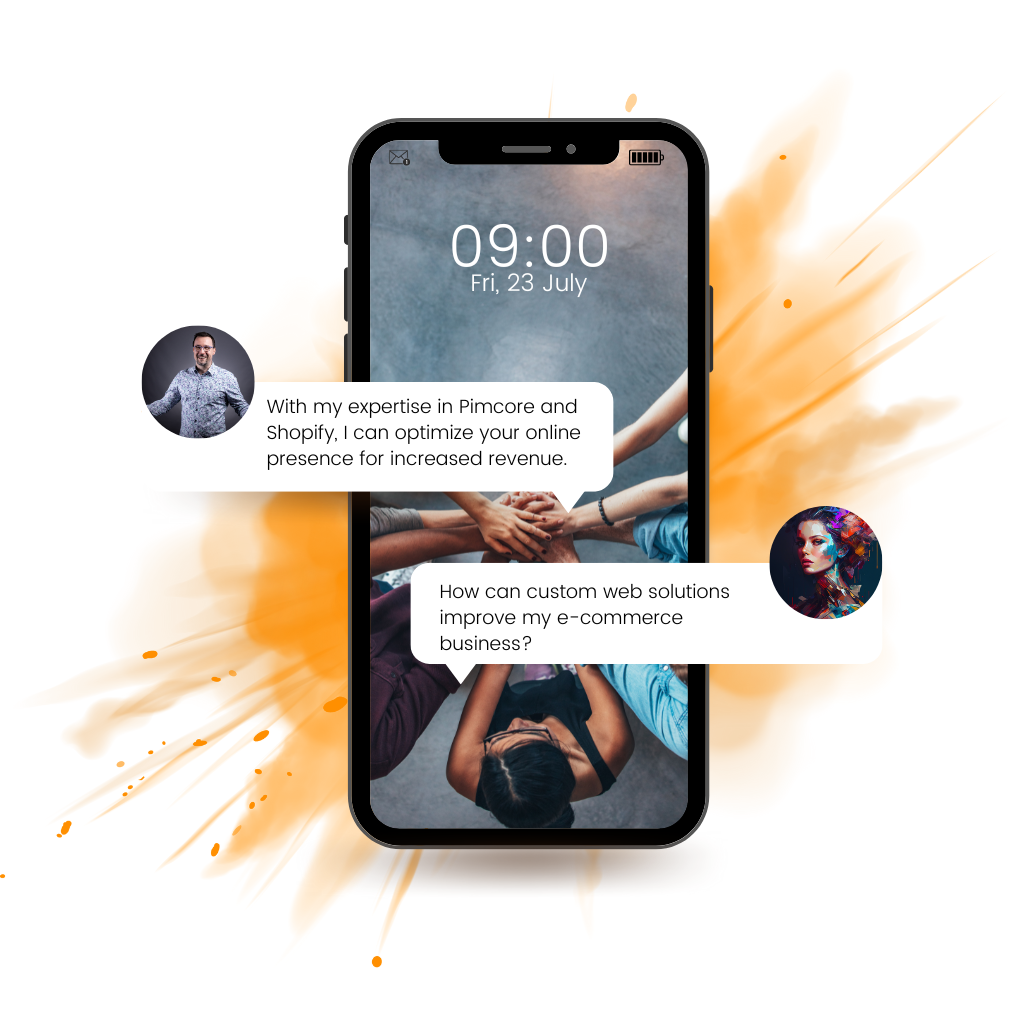Shopify Development: Elevate Your E-commerce with Expert Solutions
Transforming Vision into E-commerce Success: Your Partner in Shopify Excellence

Key Takeaways
- Comprehensive Shopify store setup and customization
- Custom app development and third-party integrations
- Backend optimization and API implementations
- E-commerce functionality enhancements
- Performance optimization and analytics integration
- Specialized B2B and international store development
- Rigorous testing and quality assurance
- App Store optimization for maximum visibility
Unleashing the Power of Shopify Development
As a seasoned Shopify expert with years of hands-on experience, I've seen firsthand how proper development can transform an online store from a simple webpage to a thriving e-commerce powerhouse. Shopify development isn't just about making things look pretty – it's about creating a seamless, efficient, and profitable online presence that keeps customers coming back for more.
Why Choose a Shopify Expert?
When you're looking to take your online store to the next level, working with a Shopify expert is like having a secret weapon in your arsenal. Here's why:
- Deep Platform Knowledge: We eat, sleep, and breathe Shopify, understanding its nuances and capabilities inside out.
- Custom Solutions: One-size-fits-all doesn't cut it in e-commerce. We tailor solutions to your unique business needs.
- Time and Cost Efficiency: Our expertise means faster development and fewer costly mistakes.
- Future-Proofing: We stay ahead of e-commerce trends, ensuring your store is always cutting-edge.
Let's dive into the key areas where Shopify development can make a real difference for your business.
Store Setup and Customization: Your Digital Storefront
Think of your Shopify store as your digital storefront – it's the first thing customers see, and first impressions count. As a Shopify developer, I've set up countless stores, and I can tell you that the devil is in the details.
Theme Customization: Beyond the Template
Off-the-shelf themes are a great starting point, but to truly stand out, you need customization. I remember working with a client who sold handmade jewelry. We took a basic theme and transformed it into a virtual boutique, complete with 360-degree product views and a virtual try-on feature. The result? Sales increased by 150% in the first month alone.
Mobile Responsiveness: Because Phones are the New Wallets
Did you know that over 70% of Shopify store visits come from mobile devices? I always ensure that every store I develop looks and works flawlessly on all screen sizes. It's not just about shrinking the desktop version – it's about reimagining the entire user experience for thumbs and smaller screens.
Custom App Development: Tailored Functionality
Sometimes, the app you need just doesn't exist yet. That's where custom app development comes in. I've created apps that do everything from automating complex inventory management to integrating with obscure local payment gateways in emerging markets.
The Power of APIs
Shopify's robust API ecosystem is a playground for developers. I once built a custom app for a client that synced their in-store POS system with their online inventory in real-time. This eliminated overselling and improved customer satisfaction dramatically.
Admin UI Extensions: Seamless Integration
By developing admin UI extensions, we can integrate app features directly into the Shopify admin interface. This creates a smoother workflow for store owners and staff, reducing training time and increasing productivity.
Backend Magic: Where the Real Work Happens
While customers interact with the frontend, it's the backend where the magic really happens. Optimizing backend processes can significantly improve your store's performance and your ability to manage it effectively.
Custom Workflows: Automating the Mundane
I once worked with a client who was spending hours each day manually updating product information. We implemented a custom backend solution that automated this process, pulling data from their supplier's API and updating products in real-time. This saved them 20 hours a week – time they could reinvest in growing their business.
API Mastery: Connecting the Dots
Mastering Shopify's APIs – from Catalogs to Orders – allows us to create powerful integrations. For instance, I've used the Draft Order API to create a complex B2B ordering system that allowed wholesale customers to place orders with custom pricing and terms.
E-commerce Functionality: Converting Browsers to Buyers
At the end of the day, your Shopify store needs to convert visitors into customers. This is where optimizing e-commerce functionality comes into play.
Checkout Optimization: Reducing Cart Abandonment
Did you know that the average cart abandonment rate is around 70%? I've seen this number drop dramatically with smart checkout optimization. For one client, we implemented a one-page checkout with dynamic shipping calculations and saved payment methods. The result? A 25% increase in completed purchases.
Smart Discounts: Encouraging Larger Orders
Using Shopify's powerful discount system, we can create sophisticated promotions. I once set up a tiered discount system for a fashion retailer that increased their average order value by 30%. The key was making the discounts visible and enticing throughout the shopping experience.
Performance Optimization: Speed Sells
In the world of e-commerce, every second counts. A one-second delay in page load time can lead to a 7% reduction in conversions. That's why I'm obsessive about performance optimization.
Speed Tuning: From Good to Great
I approach speed optimization like a mechanic fine-tuning a race car. It's not just about compressing images (though that's important). It's about optimizing database queries, leveraging browser caching, and minimizing HTTP requests. I once reduced a client's page load time from 6 seconds to under 2 seconds – their conversion rate jumped by 15% overnight.
Analytics Integration: Data-Driven Decisions
Without data, you're flying blind. Proper integration of tools like Google Analytics provides invaluable insights. I always set up enhanced e-commerce tracking to give my clients a clear picture of their customer journey, from first click to final purchase.
Specialized Development: Because One Size Doesn't Fit All
Every business is unique, and sometimes you need specialized solutions to stand out in the market.
B2B Functionality: Not Just for Retail
Using Shopify's B2B-specific APIs, I've transformed standard stores into powerful wholesale platforms. For one client, we created a tiered pricing system with custom approval workflows, allowing them to serve both retail and wholesale customers from a single platform.
International Expansion: Going Global with Shopify Markets
Expanding internationally? Shopify Markets is a game-changer. I've helped businesses set up multi-currency stores with localized content and payment methods. One client saw a 200% increase in international sales after we optimized their store for global audiences.
Quality Assurance: Trust, but Verify
No matter how experienced you are, thorough testing is non-negotiable. I use development stores to rigorously test every feature before it goes live.
Real-World Testing: Beyond the Basics
Generated test data is good, but real-world scenarios are better. I often recruit a small group of beta testers to put new features through their paces. This has caught countless edge cases that automated testing missed.
Frequently Asked Questions
How long does it take to develop a custom Shopify store? The timeline can vary greatly depending on the complexity of the project. A basic customization might take 2-4 weeks, while a fully custom store with bespoke functionality could take 2-3 months or more.
Can you migrate my existing e-commerce store to Shopify? Absolutely! I have extensive experience migrating stores from platforms like Magento, WooCommerce, and BigCommerce to Shopify. We ensure all your products, customers, and order history are transferred seamlessly.
Do you provide ongoing support after the store is launched? Yes, I offer various support packages to ensure your store continues to perform optimally. This can include regular updates, performance monitoring, and ongoing optimizations.
How much does custom Shopify development cost? Costs vary widely based on project scope. A simple theme customization might start at $5,000, while a fully custom store with complex functionality could range from $20,000 to $100,000+. I provide detailed quotes after understanding your specific needs.
Can you help with Shopify SEO? Definitely! SEO is baked into everything I do. From optimizing site structure and meta tags to ensuring fast load times and mobile responsiveness, I implement best practices to help your store rank well in search engines.
By choosing to work with an experienced Shopify developer, you're not just getting a set of technical skills – you're gaining a partner who understands the intricacies of e-commerce and can help guide your online business to success. Let's create something amazing together!

Service
Pimcore
Tech Stack

© 2025 opre IT EOOD. All rights reserved.